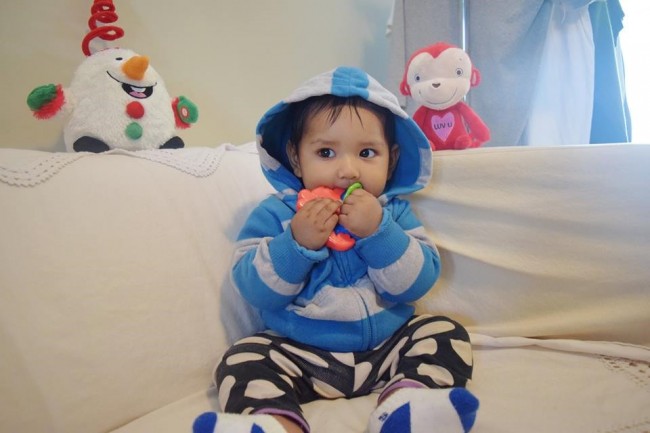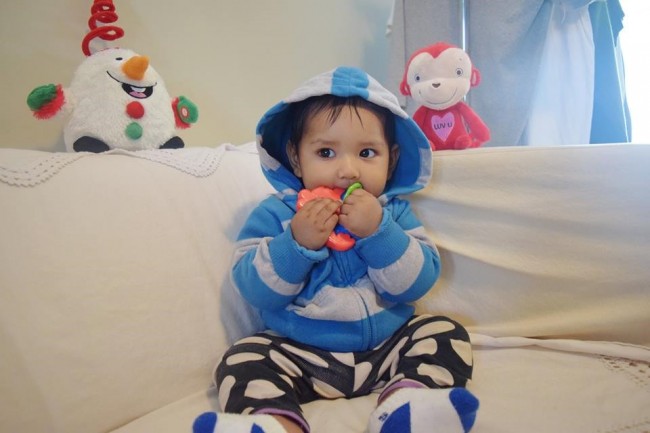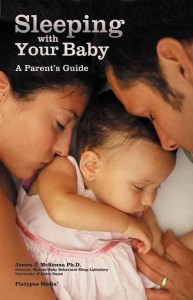BY DR. PANCHAJANYA PAUL, MD*
Many Indians living in US are baffled when told that their babies should sleep alone. This goes against the cultural norms and practice of Indians. Indian babies have been sleeping with their parents from time immemorial like other people in Asian and more traditional cultures. Making the baby sleep alone is a western construct, and that too a recent one. Even as early as 200 years ago, the babies in the western countries used to sleep with their caregivers in the same room. The media and many health professionals routinely scare the parents by saying that making the infant sleep with them will increase the risk of Sudden Infant Death Syndrome (SIDS). But the truth is more nuanced. The sudden infant death syndrome is the number one killer of infants in US. No one knows for sure, what causes it.
SIDS, also called cot death or crib death, is the sudden unexplained death of an infant. The cause of death remains unknown after all investigations. SIDS usually occurs during sleep. Infants die in sleep, without any warning. Some studies have found that infants sleeping with their parents have a higher risk of SIDS than those sleeping alone. These findings are frequently quoted by hospitals and pediatricians to discourage parents from sleeping with their babies. But in those studies, the cases where infants died, there were also other factors involved like parental alcoholism, drug abuse, obesity etc. This also goes against the global research findings which show that the rate of SIDS is lowest in countries where babies sleep with their parents. The United States where babies sleep alone has the highest rate of SIDS- 2 per 1000 live births. SIDS is lowest in Asia; the SIDS rate in Japan is 0.3 per 1000 births, 0.03 per 1000 births in Hong Kong, and even lower in China.
However bed sharing can be dangerous to the infant under certain circumstances. If one of the parent is obese, alcoholic, abusing drugs- then there is a chance they can roll over their baby, and may be too inebriated to hear the baby’s cries and may suffocate them. Also, what complicates the matter is the type of mattress commonly used in the American house hold. Most mattresses are too soft and are of poor quality. They contribute to back pain and poor sleeping postures. In contrast, the Asian countries use a relatively firmer surface for sleep. Traditional Japanese use tatami mats or much thinner cotton futons which they lay on the floor to sleep. In India, I remember my parents getting the weaver to make a thin futon for our bed using cotton. Around half of children in American are now not raised by their two biological parents. This is a matter of concern at night during sleep. The step-parent who is not biologically related may have a lower threshold of tolerance for the baby which may put the infant at risk.
Co-sleeping and bed sharing with the infant also promotes exclusive breast feeding which is protective against SIDS. Breast feeding is best for infants. It has numerous health benefits and is superior to any formula or food. World health organization recommends exclusive breast feeding for the first 4-6 months and to continue breast feeding till around 2 years. Making the baby sleep in a different room disrupts the breast feeding and leads to early weaning. The ideal way to breast feed is to feed on demand and not on schedule. That is how babies have been brought up in the traditional societies and among other primates. The biology of infants has not changed since the time human evolved from primates around 6 million years ago. All primate babies cling to their mothers. Human babies have been sleeping with their mothers for care, comfort, milk in close physical comfort for the entire length of human history. Even today, majority of babies around the world sleep with their mothers.
The Western society values independence, initiative, and risk taking; all the traits which will make one successful in a capitalistic and democratic society. These values are reflected in the child rearing practices where parents try to make their children as independent as possible, and as early as possible. The cultural notion is- earlier the babies learn to live alone and by themselves, the more independent they will become. However, studies on human infant attachment have revealed contrary results. It shows that the babies who get adequate love, care and nurturing from their parents develop secure and healthy attachment to their parents. Secure attachment leads to well-balanced adults who have less emotional problems later on. One key component of secure attachment is for the baby to feel secure when growing up. If a baby cries, it is important for parents to quickly pick up and soothe the baby. If the baby is in a different room, and parents don’t hear the cry- the baby may be crying for a while until it gets any relief. Even worse, the baby may cry to sleep getting the message that in distress there is no help.
When it comes to child care, one has to be careful about the recommendations. Many childrearing practices promoted in the western society, and endorsed by the medical association have been proven harmful. For example, until a few decades ago formula milk was promoted a healthier choice than breast milk by the manufacturers and the doctors used to endorse it. Then there was another advice to let a baby cry. Mothers were encouraged not to tend to their babies immediately and not to soothe them. This harmful practice still followed by many causes emotional distress to the babies and impedes attachment to caregivers. Then there was the practice of keeping the mother and the baby separate after birth. Hospital routinely placed the babies in a separate room. Now we know that the first hour after birth is extremely crucial for the bonding between the baby the mother and they should be kept in contact during that time. The American Pediatric Association used to advocate separate sleeping room for babies. It changed its position in light of the new research, and now recommends that babies sleep in the same room as parents, but in a separate surface like a bassinet. This is better as it will provide room for skin to skin contact between the baby and the mother.
Many parents put a television in the baby’s room to stop them from crying, and help them sleep. This is extremely harmful as the light from the TV will disrupt the sleep which is important for baby’s growth. Another practice is the use of radio transmitters or a camera in the baby’s room so the parents can monitor the baby from their room. This is unnecessary, expensive, and makes the simple process of sleep rather complicated. Just add another futon in the bedroom and let the baby sleep there in front of your watchful eyes and free from the electronic distractions. For a safer sleep environment “infants should always sleep on their backs, on firm surfaces, on clean surfaces, in the absence of (secondhand) smoke, under light (comfortable) blanketing, and their heads should never be covered” writes lead sleep researcher Jospeh Mckenna.
Child rearing is a personal choice. The sleeping arrangement for babies and adults is a decision guided by cultural norms and societal expectations. From the standpoint of the babies health and biology- infants should stay as close to their caregivers as possible both during the day and the night. It might not be possible all the time in the urban setting where mother has to leave for work. Nonetheless, it is still best for the baby and every effort should be made towards it. At night, infants should sleep in the same room and very close either in the same bed or an attached surface so the constant skin to skin contact is possible. This will also ensure that the infant will be able to breastfeed on demand. It will lower the stress and anxiety level for both the mother and the baby, and is protective against SIDS. However, it may not be safe for the babies to share bed with parents who are abusing alcohol and drugs, who are morbidly obese, who are taking sedative or sleeping pills at night, and who are not biologically related to the baby. In summary, the need for babies to sleep close to the mother is essential in the first year of life when the risk for infant mortality is highest. As baby grows and learns to vocalize and speak, they can be transferred to their own room gradually.
Here is the link to site of Professor James J. McKenna who is recognized as the world’s leading authority on mother-infant co sleeping in relationship to breastfeeding and SIDS: http://cosleeping.nd.edu/safe-co-sleeping-guidelines/
Those who are interested to know about the co-sleeping concerns and current debates can refer to the blog of the Dr. Sears who is the expert on attachment parenting: https://www.askdrsears.com/news/latest-news/dr-sears-addresses-recent-co-sleeping-concerns
 Dr. Panchajanya Paul, MD, ABIHM, FAPA is an American Board certified – Child, Adolescent, and Adult psychiatrist. He is a diplomate of the American Board of Integrative and Holistic Medicine. He is a fellow of the American Psychiatric Association. He holds adjunct faculty position at Emory University School of Medicine; University of Georgia & Georgia Regents University, and University of Central Florida School of Medicine. He is a freelance writer who lives in Atlanta.
Dr. Panchajanya Paul, MD, ABIHM, FAPA is an American Board certified – Child, Adolescent, and Adult psychiatrist. He is a diplomate of the American Board of Integrative and Holistic Medicine. He is a fellow of the American Psychiatric Association. He holds adjunct faculty position at Emory University School of Medicine; University of Georgia & Georgia Regents University, and University of Central Florida School of Medicine. He is a freelance writer who lives in Atlanta.





